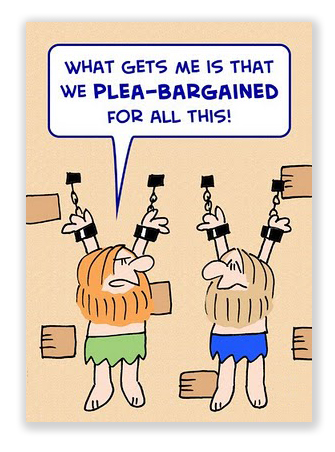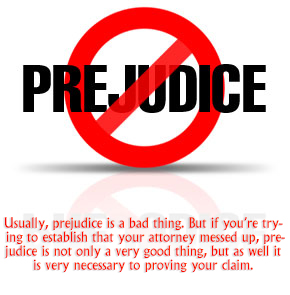We post news and comment on federal criminal justice issues, focused primarily on trial and post-conviction matters, legislative initiatives, and sentencing issues.

6TH CIRCUIT EASES PREJUDICE SHOWING REQUIRED FOR INEFFECTIVE ASSISTANCE OF COUNSEL ON PLEA AGREEMENT
 One of the biggest hurdles facing an inmate filing a post-conviction motion under 28 USC 2255 who argues his lawyer gave bad advice on taking a plea deal is proving that he would have gone to trial but for the bad advice. That is the old Hill v. Lockhart prejudice standard for ineffective plea advice. The problem is that often, there is no way the defendant would have gone to trial under any circumstances, but he would have tried to negotiate a different plea deal or even entered a blind “straight-up” guilty plea without a plea deal at all.
One of the biggest hurdles facing an inmate filing a post-conviction motion under 28 USC 2255 who argues his lawyer gave bad advice on taking a plea deal is proving that he would have gone to trial but for the bad advice. That is the old Hill v. Lockhart prejudice standard for ineffective plea advice. The problem is that often, there is no way the defendant would have gone to trial under any circumstances, but he would have tried to negotiate a different plea deal or even entered a blind “straight-up” guilty plea without a plea deal at all.
Until recently, unless you could show you would have gone to trial but for the bad advice, you could not win a 2255 ineffective plea claim. Last week, the 6th Circuit has joined five other circuits in holding that a 2255 defendant may demonstrate prejudice if he can show that, had he been properly advised, he would have bargained for a more favorable plea.
Daynel Rodriguez-Penton argued in a 28 USC 2255 motion that his lawyer failed to warn him that pleading guilty would get him deported. The district court denied his motion, relying on the Hill v. Lockhart prejudice standard.
The 6th Circuit reversed, holding that “the legal landscape for such claims has changed in material ways since Hill.” In Missouri v. Frye, the Supreme Court explained that “Hill applies in the context in which it arose. Hill does not, however, provide the sole means for demonstrating prejudice arising from the deficient performance of counsel during plea negotiations.” The Frye court ruled that petitioners who allege ineffective assistance of counsel during the plea process may satisfy the prejudice prong even without a showing that they would have gone to trial were it not for counsel’s deficient performance.
 The Circuit said last week that such a prejudice showing may be made in different ways, such as by identifying similar plea agreements reached by others charged with similar crimes, by showing that the petitioner would have gone to trial, or by proving his decision-making process would somehow have been different. What is necessary, the Court said, is that, “no matter the route he takes, [the defendant] must still end up at the same place: he must present evidence sufficient to undermine confidence in the outcome of the plea-negotiation process.”
The Circuit said last week that such a prejudice showing may be made in different ways, such as by identifying similar plea agreements reached by others charged with similar crimes, by showing that the petitioner would have gone to trial, or by proving his decision-making process would somehow have been different. What is necessary, the Court said, is that, “no matter the route he takes, [the defendant] must still end up at the same place: he must present evidence sufficient to undermine confidence in the outcome of the plea-negotiation process.”
Daynel will now get a chance to prove he could have cut a plea agreement that would have kept him in the US.
Rodriguez-Penton v. United States, Case No. 15-6306 (6th Cir. Oct. 2, 2018)
– Thomas L. Root

